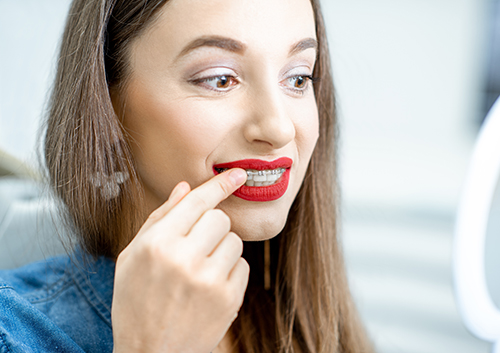Eating and Invisalign®
April 24th, 2023

One of the greatest advantages to using Invisalign is that it provides maximum results with minimal impact on your everyday life. Invisalign is comfortable, easy to insert, and simple to remove. Because you can remove Invisalign aligners, you can enjoy all your favorite foods and beverages without worries about getting food stuck in the wires and brackets of traditional braces.
Eating and Invisalign
While the aligner is durable and strong, you should remove it before you eat or drink beverages, as the chewing action inside your mouth can break, crack, or distort the aligner. Even minute damage to the Invisalign tray will prevent it from aligning your teeth properly. Furthermore, eating with Invisalign in your mouth can be quite messy.
Beverages and Invisalign
Repeated exposure to hot liquids may also cause the Invisalign aligner to distort. This distortion changes the shape of your aligner in a way that will affect how it straightens your teeth. Contact our Portland or Vancouver office if your Invisalign aligner has distorted after consuming a hot beverage.
Fluids can settle inside the aligner to “bathe” the teeth. Bathing teeth in acidic fluids can be especially problematic, as the acids can wear away tooth enamel. Exposure to acidic fluids is not normally a problem, as saliva neutralizes and buffers the acid then washes it away. Wearing an aligner, however, prevents the saliva from doing those jobs, increasing your risk for tooth decay.
Colored drinks may also change the color of your teeth. Most discoloration is temporary but stubborn stains may occur.
To prevent discoloration and tooth decay, brush your teeth after every meal or beverage before putting in your Invisalign aligners. If you do not have access to clean water, chew sugar-free gum to remove bacteria, acid, and food particles from your teeth. As a last resort, you may leave your aligners out for an hour or two until you can brush and floss properly. Before inserting Invisalign, rinse the aligner in lukewarm water or use the Invisalign cleaning kit.
Contact our Portland or Vancouver office for more information about eating and Invisalign.




 Website Powered by Sesame 24-7™
Website Powered by Sesame 24-7™